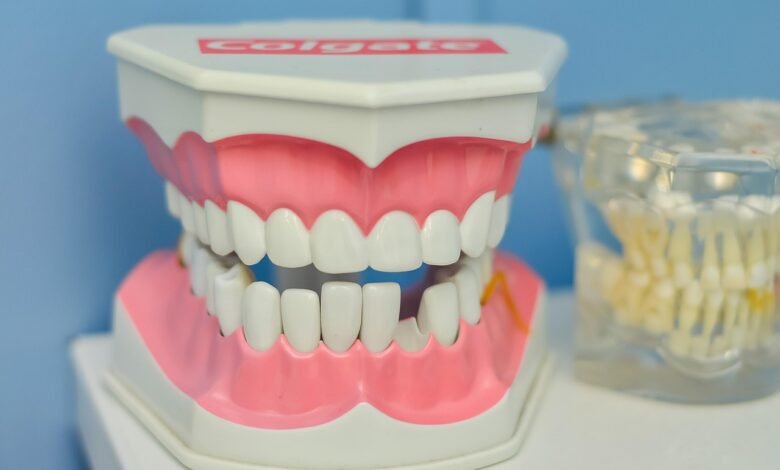Discover Top-Rated Dental Implants in Jacksonville, TX

1. Cherokee Dental Professionals
When it comes to finding top-rated dental implants in Jacksonville, TX, Cherokee Dental Professionals is a name that often comes up. They focus on restorative dental treatments designed to bring back your smile and improve your oral health. Whether you’re dealing with a simple cavity or need more complex work like full-mouth rehabilitation, they aim to provide personalized care using modern techniques.
Here’s what makes them stand out:
- Comprehensive Services: They handle everything from basic fillings to advanced procedures like dental implants.
- Personalized Care: They tailor their treatments to fit your specific needs.
- Advanced Techniques: They use modern methods to ensure you get the best possible results.
They’re located at 408 Wynn Dr, Jacksonville, TX, 75766, US, and you can reach them at 9035866829. Their hours are Mon-Thu: 8:00 am – 5:00 pm and Fri: 8:00 am – 1:00 pm. If you’re looking to restore your smile, Cherokee Dental Professionals might be a good place to start.
2. Dental Zone
When considering dental implants in Jacksonville, TX, Dental Zone is another practice you might want to check out. I’ve heard good things about them from people in the area. It seems like they focus on making patients feel comfortable and well-cared for.
From what I gather, here are a few things that seem to stand out about Dental Zone:
- Patient Focus: They go the extra mile to address any concerns and make sure you understand your treatment options.
- Friendly Staff: Lots of people mention how welcoming and helpful the staff are, which can make a big difference when you’re feeling anxious about dental work.
- Comprehensive Care: Besides implants, they seem to offer a wide range of services, so you can take care of most of your dental needs in one place.
Of course, it’s always a good idea to do your research and see if they’re the right fit for you. But based on what I’ve heard, Dental Zone is worth considering if you’re looking into dental implants.
3. Fillings
So, you’ve got a cavity? Don’t sweat it, fillings are a pretty common thing. I had one just last year, and honestly, it was way easier than I thought it would be. Fillings are used to fix teeth that have been damaged by decay. The dentist removes the bad part and then fills the hole with some kind of material. It’s like patching up a pothole in the road, but for your tooth. Modern fillings are pretty cool because they can match the color of your teeth, so it doesn’t even look like you had anything done. When it comes to dental implants, fillings are a much simpler procedure.
Here are a few things to keep in mind about fillings:
- Types of Materials: There are different kinds of fillings, like composite (the tooth-colored ones), amalgam (silver-colored), gold, and ceramic. Your dentist can help you decide which one is best for you.
- The Procedure: It usually involves numbing the area, removing the decay, and then filling the tooth. It’s pretty quick and relatively painless.
- Aftercare: Just brush and floss like normal! Avoid hard or sticky foods for a bit after getting a filling, just to be safe.
If you think you might need a filling, it’s always best to get it checked out sooner rather than later. Letting a cavity go can lead to bigger problems down the road, like a root canal. Nobody wants that!
4. Dentures
So, you’re considering dentures? It’s a big step, but it can improve your quality of life. Dentures are basically replacement teeth that can restore your smile and ability to chew properly. There are a few different types, and the best option for you depends on your specific needs. When thinking about dentures, it’s important to consider a few things:
- Full vs. Partial: Full dentures replace all your teeth on either the top or bottom jaw, while partial dentures fill in gaps when you still have some natural teeth remaining. It all depends on how many teeth you’re missing.
- Material Matters: Dentures are typically made from acrylic or porcelain. Acrylic is more common because it’s more affordable, but porcelain can look more natural and is more durable. It’s a trade-off.
- Maintenance is Key: Just like real teeth, dentures need to be cleaned regularly. You’ll need to brush them daily and soak them overnight to keep them in good shape and prevent bacteria buildup. Also, regular check-ups with your dentist are important to ensure a good fit and oral health.
And if you’re looking for extra stability, you might want to consider implant-supported dentures. These dentures attach to dental implants, providing a more secure and comfortable fit. Speaking of stability, dental implants can be a great option for securing dentures, making them feel more like your own teeth. It’s something to discuss with your dentist in Jacksonville, TX.
5. Bridges
So, you’re thinking about bridges? Okay, let’s talk about it. Dental bridges are a pretty common solution when you’ve got a missing tooth (or teeth). They bridge the gap, using the teeth on either side as anchors. I know a lot of people who have gotten dental bridges in Jacksonville, TX, and they’re generally pretty happy with the results.
Here’s what I’ve gathered about bridges:
- Types of Bridges: There are a few different kinds, like traditional bridges, cantilever bridges, and Maryland bridges. Your dentist will help you figure out which one is best for your situation.
- The Process: Getting a bridge usually takes a couple of visits. First, they prep the abutment teeth (the ones next to the gap). Then, they take impressions to make a custom bridge. You might get a temporary bridge while the real one is being made.
- Maintenance: You’ve gotta keep them clean! Brush and floss like your dentist tells you to. Special floss threaders can help you get under the bridge. Regular check-ups are a must, too.
6. Root Canal Treatment
So, you’re looking into root canal treatment? It’s not as scary as it sounds, trust me. Basically, it’s what happens when the inside of your tooth, the pulp, gets infected. This can happen from a deep cavity, a crack in the tooth, or even trauma from an injury. If it’s not treated, it can lead to some serious pain and even an abscess. No fun!
Here’s a bit about what to expect:
- First, the dentist will numb the area. You shouldn’t feel a thing during the procedure.
- Then, they’ll make a small opening in your tooth to access the infected pulp.
- Next, they’ll carefully remove the pulp, clean, and disinfect the inside of the tooth.
- After that, the dentist will fill the space with a special material to seal it off.
- Finally, you’ll likely need a crown to protect the tooth and restore its strength. Think of it like a little helmet for your tooth.
After the root canal, you might have some sensitivity for a few days, but it’s usually manageable with over-the-counter pain relievers. The important thing is that you’ve saved your tooth! It’s way better than losing it altogether. Plus, with proper care, a root canal can last a lifetime. So, if your dentist recommends a root canal, don’t freak out. It’s a common procedure that can help.
7. Porcelain Veneers
Considering porcelain veneers in Jacksonville? They’re a pretty popular way to fix up your smile, and honestly, they can make a huge difference. They’re thin shells that go over the front of your teeth. I’ve seen some amazing before-and-after pictures, and it’s wild how much they can change someone’s confidence.
Here are a few things they can fix:
- Chipped or broken teeth: Veneers cover up those imperfections, making your smile look whole again.
- Gaps between teeth: Small gaps can be closed with veneers, giving you a more uniform look.
- Discoloration: If you’ve got stains that whitening can’t fix, veneers are a great option.
It’s not a one-size-fits-all thing, though. You’ll need to talk to your dentist to see if veneers are the right choice for you. They’ll check your teeth and talk about what you’re hoping to achieve. Plus, there’s a bit of prep work involved, like removing a tiny bit of enamel so the veneers fit just right. But hey, a little effort for a big smile, right?
8. Professional Teeth Cleanings
Okay, so professional teeth cleanings. I used to think, “Eh, I brush twice a day, I’m good.” But let me tell you, there’s a HUGE difference between what you do at home and what the pros do. It’s like comparing a quick dusting to a full-on deep clean of your house. You know, the kind where you move all the furniture and get into every nook and cranny. That’s what professional teeth cleanings are like for your mouth. And if you are considering dental implants, it’s important to keep your mouth clean.
Here’s why I’m now a total convert:
- Plaque and Tartar Removal: No matter how well you brush, there are always those sneaky spots you miss. A dental hygienist has special tools to get rid of hardened plaque (tartar) that your toothbrush just can’t handle. Seriously, it’s like they’re excavating a whole civilization of gunk from your teeth. It’s kinda gross, but also super satisfying.
- Preventing Gum Disease: All that plaque buildup? It leads to gum disease. And trust me, you do NOT want gum disease. It can cause all sorts of problems, from bleeding gums to, eventually, tooth loss. Regular cleanings help keep your gums healthy and happy.
- Spotting Potential Problems: During a cleaning, the hygienist and dentist are also on the lookout for any potential issues, like cavities or early signs of oral cancer. Catching these things early can save you a lot of pain (and money) down the road.
- Fresher Breath: Let’s be real, who doesn’t want fresher breath? Getting rid of all that bacteria and buildup leaves your mouth feeling clean and your breath smelling minty fresh. It’s a confidence booster, for sure.
- Stain Removal: Coffee, tea, red wine… they all take a toll on your pearly whites. Professional cleanings can help remove surface stains and brighten your smile. It’s not teeth whitening, but it makes a difference.
So, yeah, I’m a believer. Professional teeth cleanings are an important part of taking care of your oral health. It’s not just about having a pretty smile; it’s about keeping your mouth healthy and preventing problems before they start. Plus, who doesn’t love that squeaky-clean feeling?
9. Removable Dentures
Removable dentures are a pretty common solution for missing teeth, and they’re one of the options we offer here in Jacksonville, TX. I know a lot of people have questions about them, so let’s get into it. Basically, they’re artificial teeth that you can take out and put back in. They’re not as permanent as dental implants, but they can really improve your smile and ability to chew.
There are a few things to keep in mind if you’re considering removable dentures:
- Types: You’ve got full dentures, which replace all your teeth on either the top or bottom, and partial dentures, which fill in gaps when you still have some natural teeth. The type you need depends on your specific situation.
- Fit and Comfort: Getting used to dentures can take a little time. They might feel weird at first, but with adjustments, they should become more comfortable. It’s important to follow your dentist’s instructions on how to care for them and keep them clean.
- Maintenance: Cleaning is super important. You’ll need to remove them and brush them daily to prevent bacteria buildup and keep your gums healthy. Also, soaking them overnight helps keep them moist and in good shape.
Honestly, removable dentures can make a big difference in your quality of life if you’re dealing with missing teeth. They’re not for everyone, but they’re worth considering if you’re looking for a way to restore your smile and chewing ability.
10. Sealants
Okay, so let’s talk about sealants. I remember when my dentist first suggested them for my kid. I was like, “What are those?” They’re a protective coating put on the chewing surfaces of your back teeth – molars and premolars. The idea is to prevent cavities by sealing out food and bacteria. It’s a pretty simple process, and honestly, it’s a great way to protect your teeth, especially if you’re prone to getting cavities. Think of it as a shield for your teeth! When considering dental implants, don’t forget the importance of preventative measures like sealants for overall oral health.
Here’s why sealants are a good idea:
- Cavity Prevention: They block out food and bacteria from getting into the grooves of your teeth.
- Easy Application: It’s a quick and painless process. The dentist cleans the tooth, applies the sealant, and then uses a special light to harden it.
- Long-Lasting Protection: Sealants can last for several years, giving you long-term protection against decay.
So, if you’re looking for an easy way to keep your teeth healthy, ask your dentist about sealants. It’s a simple step that can make a big difference!




